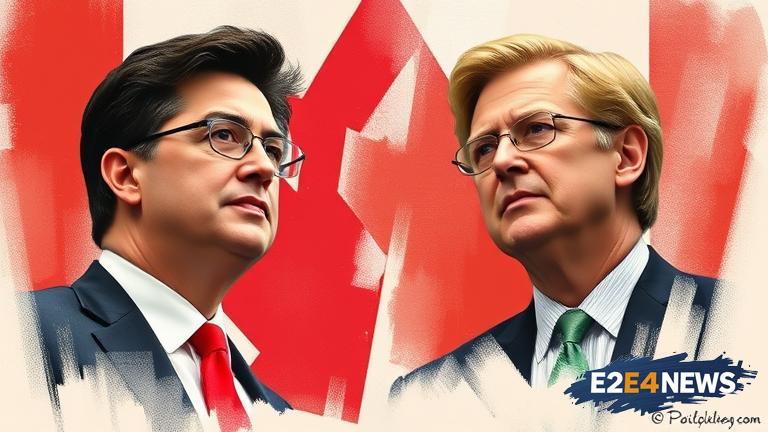The Canadian political scene is abuzz with anticipation as a crucial byelection approaches, one that could potentially make or break the career of Conservative Party leader Pierre Poilievre. Experts are weighing in, suggesting that the outcome of this byelection will be a significant indicator of Poilievre’s future in politics. With the Conservative Party under his leadership, the stakes are high, and the results of the byelection will undoubtedly be scrutinized by both supporters and critics alike. The byelection, scheduled to take place in the near future, has garnered considerable attention from political analysts and the general public. It is seen as a test of Poilievre’s leadership and the party’s overall popularity. If the Conservative Party emerges victorious, it would be a substantial boost to Poilievre’s career, solidifying his position as the leader of the party. Conversely, a loss could lead to increased pressure on Poilievre, potentially threatening his leadership. The byelection is also being viewed through the lens of the current political climate in Canada, with issues such as the economy, healthcare, and environmental policies taking center stage. Voters are expected to cast their ballots with these pressing issues in mind, making the outcome even more unpredictable. Poilievre, known for his conservative stance on various issues, has been working tirelessly to garner support for his party. His leadership style and policy proposals have been under intense scrutiny, with some praising his vision for Canada’s future while others criticize his approach as divisive. The Conservative Party, under Poilievre’s leadership, has been focusing on issues such as tax cuts, reduction in government spending, and a tougher stance on law and order. These policies have resonated with some segments of the population but have also faced opposition from those who believe they could exacerbate existing social and economic inequalities. As the byelection draws near, political pundits are analyzing the potential outcomes and their implications for Poilievre’s career. A win would not only reaffirm his leadership but also give him the momentum needed to challenge the current government more effectively. On the other hand, a defeat could lead to internal party conflicts and potentially pave the way for a leadership challenge. The role of other political parties in Canada, including the Liberal Party and the New Democratic Party, will also be crucial in shaping the outcome of the byelection. Their strategies and campaign promises will influence voter decisions, adding another layer of complexity to the election. Furthermore, the byelection will serve as an indicator of the mood of the Canadian electorate, providing insights into which policies and leadership styles resonate with voters. This, in turn, could influence the broader political discourse in Canada, affecting not just Poilievre’s career but the direction of the country as a whole. In conclusion, the upcoming byelection in Canada is a pivotal event that will have far-reaching consequences for the political landscape of the country, particularly for the future of Pierre Poilievre as the leader of the Conservative Party. As Canadians prepare to cast their votes, the anticipation builds, and the world watches, eager to see how this significant political event will unfold. The outcome, regardless of which party emerges victorious, will undoubtedly shape the course of Canadian politics for years to come. With such high stakes, the byelection has become a focal point of discussion among political analysts, journalists, and the general public. Each party is pulling out all the stops to secure a win, knowing well that the implications of this byelection extend far beyond the local constituency, reaching into the heart of Canadian politics. The campaign trails are filled with promises, debates, and strategic maneuvers, all aimed at swaying the undecided voters who will ultimately decide the fate of Poilievre and the political future of Canada. As the voting day approaches, tensions are running high, and the political atmosphere is charged with anticipation and uncertainty. Only time will tell how the Canadian electorate will decide, but one thing is certain – the outcome of this byelection will be a defining moment in Canadian political history.
